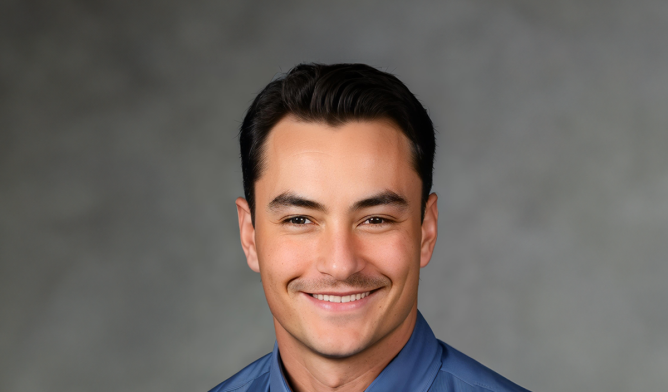Embracing Hope: A Journey of Resilience Through Mesothelioma
AdvocacyWritten by Thomas J. Coyne | Edited by Walter Pacheco

Thomas Coyne is a business major with aspirations to pursue a career in sports management upon graduating. Influenced by his grandfather, a Vietnam veteran who faced pleural mesothelioma with unwavering courage, Thomas has developed a deep appreciation for resilience and perseverance. His academic and athletic pursuits are driven by a commitment to honor his grandfather’s legacy of determination and hope, embodying the values of strength and purpose in overcoming life’s challenges.
The late cancer activist Stuart Scott once said, “You beat cancer by how you live, why you live, and in the manner in which you live.” I have since come to learn that while the quote is inspiring to those undergoing treatment, it doesn’t ring true to those of us who have already lost a loved one to cancer. Asbestos, a silent killer, is a toxic mineral responsible for causing mesothelioma, an aggressive and often terminal cancer that affects more than 3,000 Americans each year.
This disease doesn’t just attack individuals; it devastates families and communities. It’s a reality I’ve become all too familiar with, not only because it claimed my grandfather but also because my best friend’s brother is currently battling terminal cancer. These experiences taught me that raising awareness about mesothelioma, promoting research, and supporting those affected are crucial steps in fighting this relentless disease.
Late-Stage Diagnosis for My Pop
In late 2008, my grandfather received a life-shattering diagnosis: pleural mesothelioma. His pleural mesothelioma was originally diagnosed by a routine X-ray for his insurance renewal, which revealed abnormalities in the lungs. Naturally, a biopsy is typically performed, where a tissue sample is taken and examined under a microscope to confirm the presence of mesothelioma cells.
From there, it was a series of PET scans, MRIs, and blood tests for specific biomarkers. Unfortunately, pleural mesothelioma is often diagnosed at an advanced stage because its symptoms, such as chest pain, shortness of breath, and persistent cough, which, in the case of my grandfather, are often mistaken for other, less severe conditions. Unfortunately, for my “Pop,” the diagnosis came too late for effective treatment. Despite the best efforts of his doctors, the mesothelioma had spread extensively. He passed away just months after his diagnosis — a victim of a disease that took hold quietly and progressed aggressively.
The truth is that my grandfather’s exposure to asbestos likely happened decades before, possibly when he was a young man serving in Vietnam or during his decades of working in asbestos-ridden attics as an HVAC repairman. Like so many others, he had no idea he was being exposed to something so deadly until it was too late.
While most pleural mesothelioma patients are given a life expectancy of less than 18 months after diagnosis, my grandfather was told he had only approximately 8 months to live. It felt like a death sentence, but my grandfather, whom we lovingly called “Pop,” was determined to fight. It’s horrible watching someone you love, who is fighting for their life, struggle to breathe because of the fluid accumulating around his pleural space, but my Pop was never one to quit.
Pop Spends Time Traveling the World
Right after his diagnosis, Pop and my grandmother spent several weeks traveling the world. They started with a trip to Rome, then visited Jerusalem, followed by China, and finally capped it off with some time in St. Martin. For Pop, it was more than just a vacation; he saw it as a way to come to terms with his situation — or at least that’s what he said. I believe he wanted to show my grandmother the world before he passed. After their adventure, Pop returned with a renewed sense of purpose. He was ready to fight and spent every moment he could between VA doctor’s appointments and researching alternative treatments.
Luckily or planned, I’m not very certain at the moment, a fellow veteran my grandfather met on his trip to China wasn’t just any ordinary person; he was a seasoned warrior in the fight against cancer. His experience with the disease offered Pop hope when the rest of us were overwhelmed by despair. “There are more than the traditional medicine treatments for cancer,” the veteran told my grandfather. “But the goal is to keep you alive long enough for a modern medicine breakthrough in treatment to emerge.” That simple statement ignited a spark of hope that carried Pop through the darkest times. The rest of us were a bit more skeptical.
The other Vietnam veteran shared his story of undergoing extensive surgery to remove some affected tissue. But surgery was only the beginning. He also spoke of a specialized chemotherapy treatment he had undergone, known as hyperthermic intraperitoneal chemotherapy (HIPEC). This procedure involves circulating heated chemotherapy drugs directly into the abdominal cavity, a method that has shown promise in extending the lives of some peritoneal mesothelioma patients. This veteran’s battle and perseverance became a guiding light for my grandfather, giving him the courage to explore all possible treatments and continue his fight.
Finding Hope in Loss
For us, treatment wasn’t just about extending life; it was about giving Pop the chance to live. And live he did. Unfortunately, he passed the following November, albeit peacefully at home. It had been 13 months since that initial 8-month life expectancy, and during that year, he traveled the world, became a grandfather for the 7th time, and loved my grandmother as if they were newlyweds. That year had been a gift, not just to him but to everyone who loved him.
My grandfather’s story embodies hope, resilience, and the incredible impact of the will to fight. It shows that a mesothelioma diagnosis doesn’t have to be a final verdict. Instead, it highlights how crucial it is to explore alternative treatments and a modern medical treatment plan, which can postpone the outcome. Above all, his journey proves that, even when faced with a terminal illness, there’s always a reason to keep fighting.
For anyone who has received a mesothelioma diagnosis, remember that hope is never lost. What might begin as a grim prognosis and short life span can extend into years of life. The essential factor is finding someone who shares your commitment to living and fighting for your future. By working together, we can strive for new advancements, support those affected and maintain hope.







